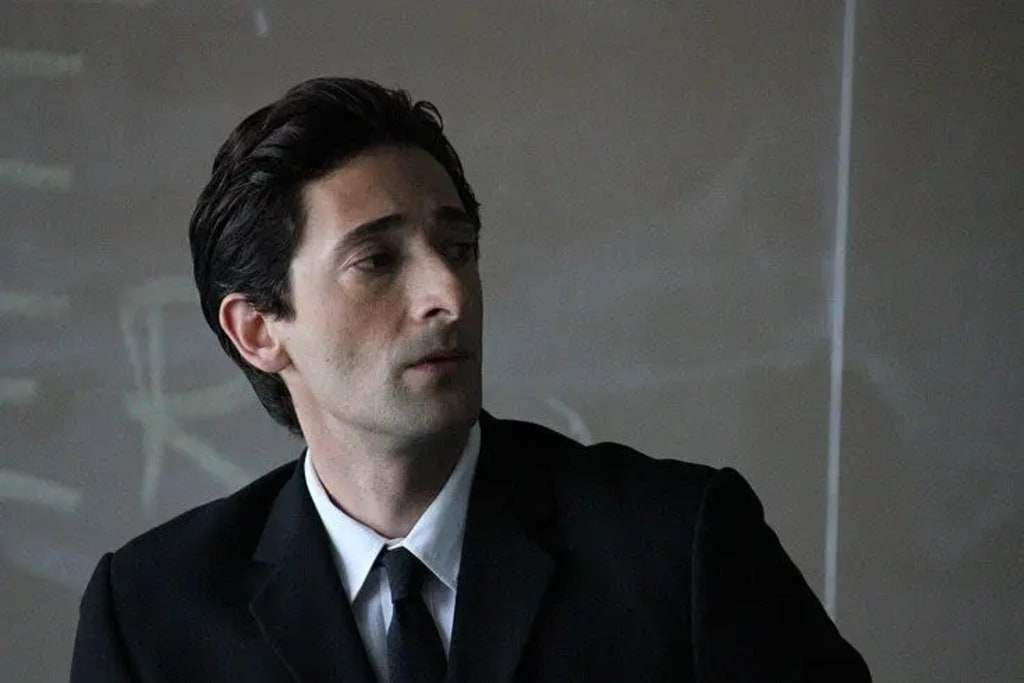
The film opens with a quote from Camus: "And never have I felt so deeply at one And the same time so detached from myself And so present in the world." It works like a teacher giving a direction to answer questions before reading comprehension, suggesting the best way for us to understand the hero.
Henry and Meursault had a very similar attitude towards life, which can be generalized to a kind of detachment from life, such as the movie title. This is also the embodiment of Camus' absurdism: people are indifferent to everything constructed by society, have no strong belief or pursuit of things, and just want to live like a zombie on the premise of recognizing the absurd nature of life. The person with this attitude is not angry because he does not seriously participate in the so-called "game of life." Only the person who seriously participates in the game will feel angry at various things and people who are unhappy because he wants to change, or at least express his dissatisfaction.
The only two times Henry's real anger involved his family or a growing shadow. This is because once these factors are involved, he cannot face with that "detached" attitude, after all, the face of his family or his childhood experience has not learned the essence of absurdism, and this is the only life game experience in his life that he can not not seriously "participate in".
Anger is a constant throughout the film, mainly among the students at the bottom high school. Most of their degradation is the result of a lack of proper family education or care. They know they are in a mire from which there is no escape, and their sense of helplessness at the situation explodes in various forms of unprovoked anger. It is the only way in which they can express their dissatisfaction with the society, driven by their dislike of the society. Society tells them to study hard to be a good man, they are biased not; The underlying logic is: I don't want to conform to the values of a society that makes me so miserable. This depravity only allows them to remain at the bottom of society and pass on the lack of education and care to the next generation after having children. This is the sadness of many lower class communities in today's society; Generations have been unable to escape this deadly cycle.
Perhaps Henry had this attitude when he was younger, as if he had said himself that he, too, was angry. When he began to refuse to participate in the socially constructed "game of life," he ceased to be angry. Anger means that you are still participating, and you can only express dissatisfaction and resistance to the rules of social construction if you still take them seriously. If you don't take them seriously, you don't want to express any attitude at all. That's Henry's attitude. When you disdain to play this game, the game's gains and losses can not really affect your emotions, which is also his self-protection mechanism.
About Erica, his emotion is actually a swing process, from the beginning of careless charity to seriously began to care for the girl as a daughter. The girl is slowly pulling down the screen that he emotionally separates himself from others. My personal take on why he suddenly sent Erica away is this: the confrontation with Meredith reminded him of his childhood and the cost of trying to save and empathize with others; So he decided to erect the screen again, to continue to protect himself from those shadows, and to disengage himself from the game of life again.
As for why the ending brings Erica back, I think it's motivated by Meredith's death. In The Myth of Sisyphus Camus writes: "There is but one truly serious philosophical problem, and that is suicide." After recognizing that everything in life is absurd, the only philosophical problem that one needs to seriously solve is judgment: is life still worth living? Meredith's answer to this question is no. Perhaps this forced Henry to think about it, too, and he came to the same conclusion as Camus. According to Camus, even after seeing through the absurd nature of life, Meursault's walking dead way of coping is not a long-term solution. Sisyphus should not continue to push the stone mechanically. He should give it meaning after realizing the pointlessness of the work and seriously begin to push his stone. This is the path Henry took; If he can't save millions of kids at school, at least he can save Erica.
Plus, I loved the way school ended. A few days ago, I watched a video criticizing all kinds of American movies that promote the heroism of teachers. The message of these films is that one great teacher is enough to change the future of a class of students. This kind of information is not only completely unrealistic, it can even be harmful, because it tends to distract people from the reform of education resources that we really need. Without such reform, no amount of loving and great teachers can change anything. The film reflects the corruption and lack of resources in the education system, and the students of this school are not saved in the end, which I think is very true.
It ends with a quote from Edgar Allan Poe's 'The Fall of The House of Usher', which is a nice touch. The original work wants to express a family trapped in this house. They watch their family and mansion go into decay and extinction, and even have various incestuous relations because they are unwilling to go out and contact with the outside world. The students at this school, and indeed everyone in this community, are somehow stuck here, most likely for economic reasons. They watched the neighborhood slide into poverty, and the school's grades decline year after year, but they were powerless to change or leave.
Finally, the scene where Erica is forcibly taken away really earned me a tear.
About the Creator
JOKER
I thought my life was a tragedy. But now I realize it was a comedy






Comments
There are no comments for this story
Be the first to respond and start the conversation.